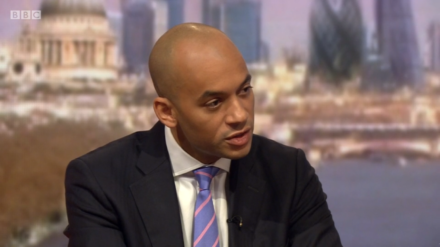
Chuka Umunna has been given a telling off after a job ad for a year-long unpaid internship in his office came to light yesterday. A message from the Leader’s Office was promptly sent around that afternoon to the entire PLP pointing out that Labour policy is to ban unpaid internships. The email even snarkily included a link to the 2017 manifesto.
Umunna says the blame lies with IPSA, the body that sets MPs’ pay and basically functions as parliament’s HR department (except not really, which as we know leads to a whole host of problems with bullying and sexual harassment). The Streatham MP emphasised that IPSA does not provide resources for MPs to recruit paid interns. Anyway, he says, he is seeking someone on a “sandwich” degree course with a ‘Year in Industry’, not an unpaid intern.
Responding to the original complaint made on Twitter, Umunna said: “I strongly believe that interns should be paid and, for that reason, I do not have any unsupported interns working in the office despite the many requests received. For many years, my office has only accepted students undertaking work experience as part of supported university schemes, or short work experience placements from the schools in my constituency.”
An unpaid internship in London lasting an entire year is clearly inaccessible to any student without a home in London or a serious amount of cash, and students are right to flag their concerns on social media. The real question here, though, is this: why do MPs continue to risk controversy? Do they just really, really enjoy not paying their staff? I don’t think so.
There’s a great deal more to be done in communicating to the public what exactly MPs and their staff do, as well as the constraints on their budgets. IPSA sets limits on accommodation, office and staffing costs, so in 2017/18 a London MP could spend up to £161,550 on staff or £150,900 outside of London. Then there are pay bands for each job role, which unfortunately set in stone the informal hierarchy amongst staffers – caseworkers at the bottom, parliamentary assistants at the top. (Why is being an overworked pseudo social worker of less value than talking to media and writing the odd speech?) These parameters lead to untruths about the roles staffers are actually performing – and unpaid interns.
Expertise, and probably experience, is needed to organise an office, manage staff and get the right structure in place. Unfortunately, many MPs don’t have that – and why should they? (Ironically, those who are so derided for being ‘career politicians’ after spending their working lives in Westminster are probably best placed to recognise a well-structured parliamentary office.)
Every MP’s office structure is idiosyncratic – some are heavy on the parliamentary side, others prefer to have just one assistant in parliament with the rest working in the constituency. That makes sense because casework isn’t evenly distributed and some MPs are on select committees or have shadow ministerial roles. Every parliamentarian has a unique focus, which is a good thing. But the current situation means that in many cases, the staff budget simply isn’t enough for the amount of work the office is expected to undertake.
A #PayUpChuka hashtag doesn’t address the root of the problem: the way MPs’ offices are organised is desperately in need of a radical rethink.
Sienna @siennamarla
Sign up to LabourList’s morning email for everything Labour, every weekday morning.




More from LabourList
Turning the page? Labour’s recovery in the polls show a path to 2029 victory
Restoration announce recommendations for NEC candidates
‘Factionalism at the top is weakening Labour – and handing a gift to Reform’